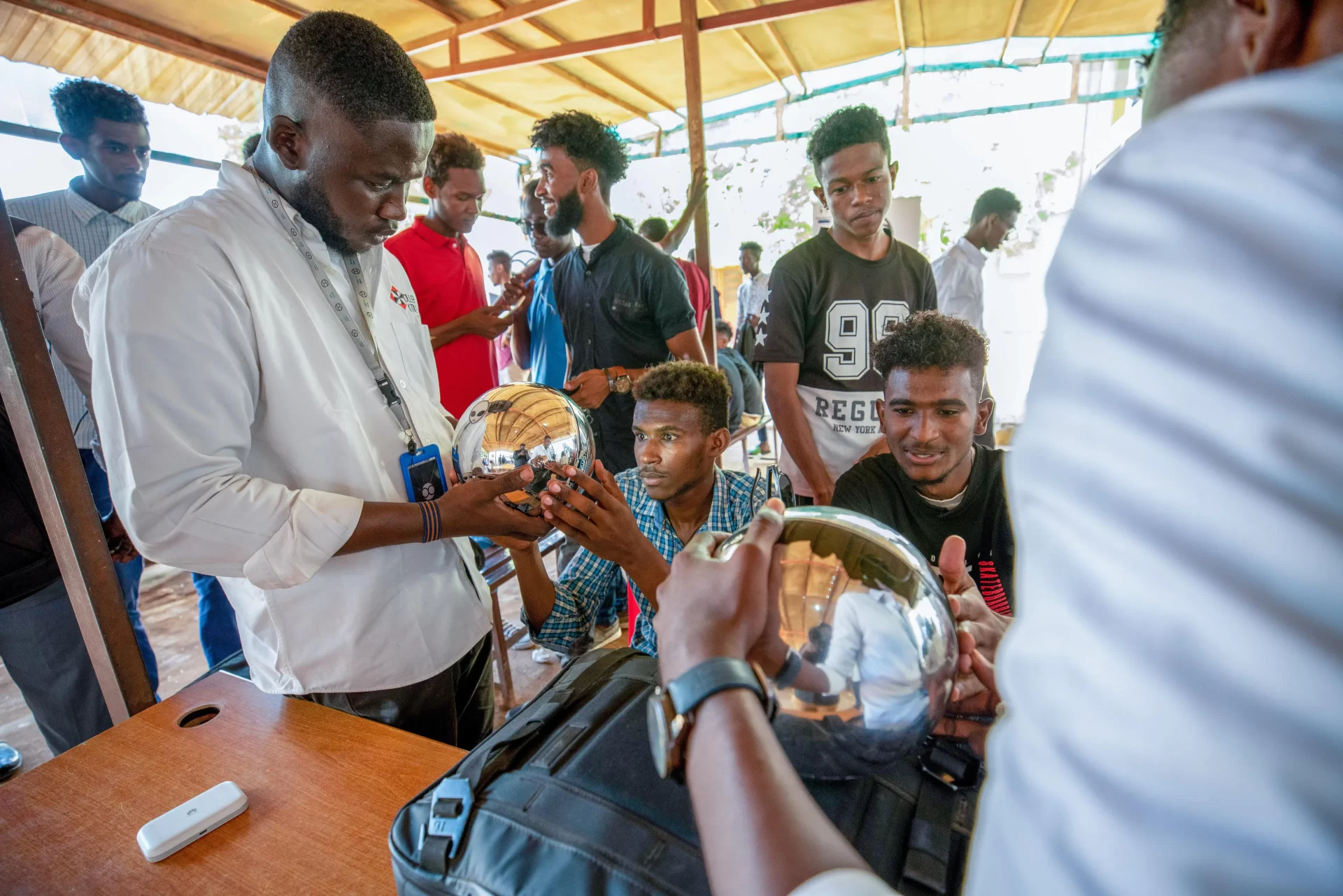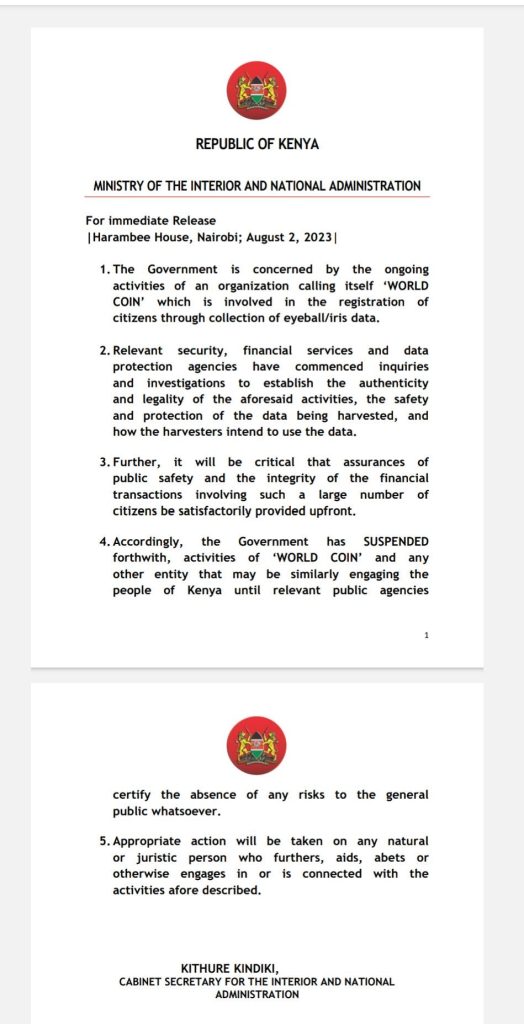Kenya Halts Iris-Scanning Worldcoin Project That Pulled Crowds

Kenya’s Ministry of Interior and National Administration has ordered a halt to all Worldcoin operations there until additional inquiries are made by appropriate government organizations.
This action, according to reports in the local media, is being taken as worries about the possible threats that this cryptocurrency poses to the general public, particularly in the area of data privacy, grow.
Hundreds of city residents had gathered at KICC on Wednesday morning to get their data collected in order to acquire Worldcoin, as has been the case since last week following Worldcoin’s official launch, but the police dispersed them.
This occurs just a couple of hours after the Interior Ministry halted the cryptocurrency company’s data harvesting efforts, reports The Star, citing a video showing the masses scattering as the police pulled up in siren-equipped cars.

Sam Altman, the mind behind OpenAI and the viral ChatGPT AI model, founded Worldcoin, a cryptocurrency project that makes use of iris-scanning technology. This novel strategy seeks to ensure the secure and distinctive distribution of digital tokens. It functions by verifying user identities, preventing fraud, and providing unbreakable biometric security for token transactions. However, managing and storing such sensitive biometric data have raised significant concerns about data privacy, underlining the critical need for strong security protocols.
After initial lukewarm interest seen during a pilot phase last year, a tremendous amount of interest has been shown in Worldcoin in Kenya since it formally launched. People from all around Kenya have gone to registration centres, building long lines, regardless of their familiarity with or comprehension of cryptocurrencies.
The pull is tied to the financial incentive, which is quite attractive at a time when Kenya is grappling with a cost of living crisis that has sparked protests. Participants are required to submit to an iris scan in exchange for free tokens, which have an estimated worth of USD 54.00 (~KES 7 K). Due to the fact that it draws people with little experience with cryptocurrencies, this indiscriminate approach has raised worries about the misuse of personal data.
Worldcoin, which is reportedly registered in Kenya as a data processor by the Office of the Data Protection Commissioner (ODPC) under its parent company’s name, Tools for Humanity GmbH, had earlier announced plans to expand its registration activities in Kenya in response to the overwhelmingly high demand.
But, the Ministry of Interior, which had earlier delivered a do-at-your-own-risk warning to Kenyans about Worldcoin, has now moved to put a stop to the programme, suspending all Worldcoin activities up until a full assessment of any potential hazards to the public can be made.
Worldcoin’s grandiose goals have drawn mounting doubts and worries about the strategy in play. The privacy issues posed by those who are suspicious of Worldcoin’s use of eye-scanning technology to establish digital identification are foremost among these.
Worldcoin’s biometric data collection and distribution practices, its awkward rewards system, the disproportionate distribution of tokens to its backers, and its ties to the ideologies and whims of the noxious cryptocurrency industry are just a few of the issues that continue to raise questions.
The halting of Worldcoin activities in Kenya is a manifestation of such concerns, bordering on the critical significance of data privacy and wariness around the possible dangers of implementing fringe technologies without careful consideration. The future of Worldcoin in Kenya is currently in doubt as authorities try to determine what kind of effects this digital effort might have.
Featured Image Credits: Worldcoin